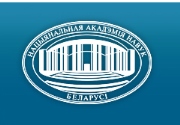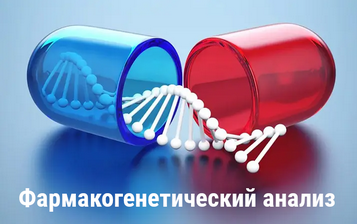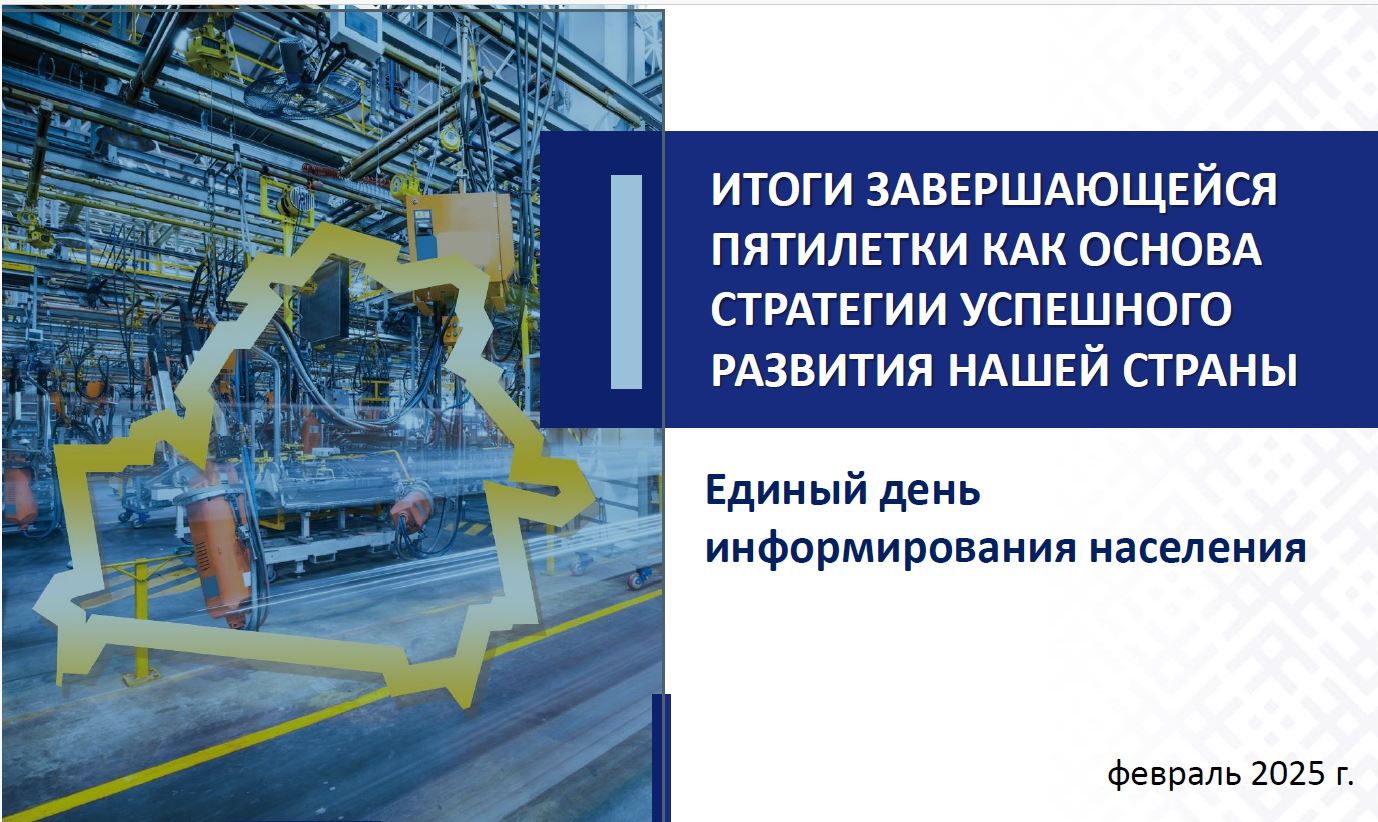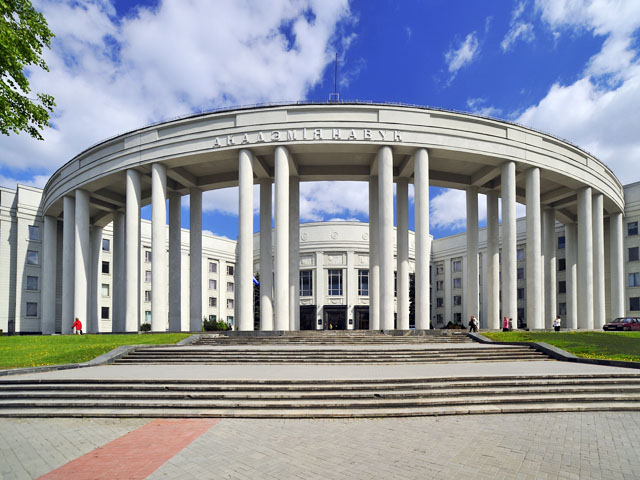|
Презентация по теме: "ПОДВИГУ НАРОДА ЖИТЬ В ВЕКАХ. К 80-ЛЕТИЮ" МАТЕРИАЛ для членов информационно-пропагандистских групп (апрель 2025 г.)
ПОДВИГУ НАРОДА ЖИТЬ В ВЕКАХ. К 80-ЛЕТИЮ (для представителей интеллигенции) 80-я годовщина Великой Победы – священная дата, наполняющая наши сердца особыми чувствами: скорби, боли, горечи и невосполнимости утрат, и в то же время гордости за подвиг наших предков, их героизм и самоотверженность в борьбе с ненавистным врагом. Восемь десятилетий назад была одержана блистательная Победа многонационального советского народа в Великой Отечественной войне, самой кровопролитной в истории человечества, унесшей жизни миллионов наших соотечественников и оставившей кровавый след в памяти каждого. Тогда мы сокрушили фашизм, потому что были вместе: русские и белорусы, украинцы и казахи, литовцы и узбеки, молдаване и таджики. Все народы большой советской страны. И сегодня, когда нарастает деструктивная риторика ряда стран в отношении суверенных государств, не желающих беспрекословно встраиваться в навязываемый извне «порядок», наши память и правда являются надежным щитом на пути воцарения в мире хаоса и идей превосходства. Однако трансформация современной системы международных отношений вынуждает быть начеку. Усиленная милитаризация соседних государств, боевые действия в Украине – отличительная особенность текущего момента. Справочно: По информации Министерства обороны Республики Беларусь, в 2025 году военные бюджеты более половины стран Североатлантического альянса, включая Польшу и государства Балтии, составляют два и более процента от ВВП. Масштабное присутствие коалиционных сил альянса на «восточном фланге» сопровождается их высокой военной активностью. В 2024 году только на территории Польши и стран Балтии проведено около 130 учений, к которым привлекалось свыше Великая Отечественная война научила нас, белорусов, свято беречь родную землю, защищать ее ценой собственной жизни и самоотверженно отстаивать правду. Мы не стали на колени перед врагами тогда и не намерены склонять голову перед ними и сегодня. Дорогами Великой Отечественной войны Великая Отечественная война прошла через каждую белорусскую семью. Эта трагедия коснулась практически каждого в Советском Союзе. Тем значимее Победа советского народа! Белорусский народ не раз подвергался немалым испытаниям, но Великая Отечественная война по своим масштабам, разрушениям и человеческим жертвам не имела себе равных за всю историю нашего государства. Судьба человечества в те суровые годы решалась на советско-германском фронте, где вермахт потерял свои вооруженные силы и свое пресловутое оружие. На оккупированных землях с первых дней войны был открыт и подлинный «второй фронт». Против фашистов поднялось более миллиона партизан – великая народная армия, действия которой приобрели стратегическое значение и стали важным фактором разгрома врага, формирования фундамента будущей Победы. Ценой жизней доблестных воинов Красной Армии уничтожался заклятый враг. То, что не смогла сделать ни одна армия стран Западной Европы, совершили бойцы и командиры Красной Армии, развеяв пропагандистский миф о непобедимости Третьего рейха. Зловещи были и планы нацистов. В соответствии с генеральным планом «Ост» (колонизация и германизация оккупированных земель Восточной Европы) на захваченной территории устанавливался «новый порядок», направленный на уничтожение существовавшего государственного строя и населения. Справочно: Концепцией плана «Ост» предусматривалось «переселение» более 30 млн славян и «германизация» европейского Востока вплоть до Урала. Предполагалось переселить 65% населения Западной Украины с занимаемой ими территории, 75% населения Беларуси, а также значительную часть населения Эстонии, Латвии, Литвы. 25% белорусов подлежало онемечиванию. Фактически это был проект ликвидации СССР как государства, истребления целых народов и социальных групп, неугодных нацистскому режиму. Сутью нацистской политики на временно оккупированной территории СССР, в том числе в Беларуси, был геноцид и «выжженная земля». Главным средством насаждения на белорусской земле своего «нового порядка» нацисты избрали политику массового кровавого террора. По последним данным Генеральной прокуратуры, на территории Беларуси фашистскими карателями были организованы свыше 578 лагерей смерти, т.е. мест принудительного содержания граждан, куда нацисты помещали людей помимо их воли с причинением им нравственных и физических страданий, привлечением к тяжелому физическому труду, не жалея ни женщин, ни детей, ни стариков. Генпрокуратурой доказано проведение не менее 187 крупных карательных операций на территории нашей страны. Подтверждено уничтожение не менее 12 348 сел и деревень. Среди дополнительно установленных и ранее неизвестных 3 148 пострадавших населенных пунктов, из которых – 102 новых, повторивших трагическую судьбу д.Хатынь, т.е. сожженных полностью вместе с жителями и не возродившихся после войны («сестры Хатыни»). Теперь этот скорбный список составляют не менее 288 деревень. Одной из форм геноцида являлся вывоз гражданского населения на принудительные работы в Германию и другие страны Западной Европы. За годы войны с территории БССР было вывезено более 380 тыс. человек, из которых многие погибли от невыносимых условий эксплуатации. Массовый характер носил и угон на принудительные работы детей. Изыскивались самые «действенные» способы истребления населения. Нацисты и их пособники не только вешали, сжигали, топили, расчленяли, душили, но и давили танками наших людей, расстреливали прямой наводкой из тяжелых орудий. По всей нашей республике установлено 166 ранее неизвестных мест уничтожения и захоронения мирных жителей и военнопленных, более половины – массовые. По сегодняшний день вскрываются факты зверств фашистов на белорусской земле. Справочно: Всего же за годы войны Беларусь потеряла более 3 млн человек, или каждого третьего жителя. Величина причиненного ущерба составляет 43,5 тыс. т золота, что эквивалентно 2,3 трлн долларов США. Мы никогда не простим жестокость, бесчеловечность и бесчинства врага на нашей земле. Мы это помним, и в этом наша сила! Победа Советского Союза в Великой Отечественной войне – это результат объединенных усилий всех братских народов. Только в боях за Беларусь плечом к плечу принимали участие представители более 70 национальностей. Звания Герой Советского Союза за освобождение республики были удостоены почти 1 700 советских воинов, в том числе 39 белорусов. Заплатив за свободу миллионами жизней своих сыновей и дочерей, наша большая Родина – Советский Союз – спасла человечество от порабощения, а отдельные народы – от полного истребления.
Справочно: В период Великой Отечественной войны около 12,7 тыс. советских воинов, партизан, подпольщиков были удостоены высшей степени отличия – звания Героя Советского Союза, 475 из них являлись нашими земляками. 74 представителя белорусского народа стали полными кавалерами ордена Славы. Достойный вклад в Великую Победу внес белорусский народ. Только в действующей Красной Армии сражались 1,3 млн белорусов и уроженцев Беларуси. В годы Великой Отечественной войны 23 наших генерала-земляка командовали армиями, более 400 белорусов и уроженцев Беларуси были генералами и адмиралами. Символами массового подвига советских воинов стали героическая оборона Брестской крепости и г.Могилева, которые продолжались дольше, чем потребовалось нацистской Германии для оккупации многих европейских государств. Справочно: Так, с 3 по 26 июля 1941 г. держалась белорусская твердыня на р.Днепре – г.Могилев. Это дольше, чем города Варшава, Осло и Копенгаген вместе взятые: Варшава – 20 суток, Осло – менее одних суток, Копенгаген – 3 часа. За 3 недели этой битвы было уничтожено 179 немецких танков, взяли в плен около 600 вражеских солдат и офицеров. Наступление немецкой группы армий «Центр» в направлении на г.Москву было задержано. Самые тяжелые бои в районе г.Могилева прошли 12 июля 1941 г. на Буйничском поле, где фашистская армия встретила сильное сопротивление. Здесь произошел самый ожесточенный бой с танковыми частями вермахта. За 14 часов боя было подбито и сожжено 39 танков и бронетранспортеров противника. Эти события легли в очерк «Горячий день» военкора Константина Симонова, который оказался очевидцем первых дней героической битвы. Сегодня, посетив Буйничское поле, можно пройтись по алее Симонова, которая заканчивается камнем-валуном, посвященным памяти первого летописца могилевской обороны. Согласно завещанию К. Симонова, его прах был развеян на Буйничском поле. Только в Беларуси в начальный период войны гитлеровцы потеряли больше солдат и офицеров вермахта, чем за все предыдущие кампании с 1939 года. Противодействие попыткам фальсификации истории Великой Отечественной войны Несмотря на всю мощь немецкой «военной машины», на террор и массовые убийства, советский народ ни на мгновение не терял веру в Победу, не опустил руки и не покорился. Поэтому мы не имеем права забывать уроки истории, которую сегодня пытаются перекроить «под себя». В ход идут откровенные домыслы и ложь. Отрезая нас от исторических корней, хотят лишить народ героического прошлого и уверенного будущего. Хотят отнять у нас Великую Победу. При этом вклад советского народа в победу над фашизмом приуменьшается и замалчивается. Попытки исказить историческую правду, нападки на наши традиционные ценности, вмешательство иностранных государств – все то, с чем в последнее время сталкивалась Беларусь, потребовало решительных действий от государственной власти. Инициированное в апреле 2021 г. Генеральной прокуратурой Республики Беларусь уголовное дело по факту геноцида белорусского народа в период Великой Отечественной войны и в послевоенный период является данью памяти погибших и также способствует установлению и сохранению исторической справедливости. Мы обязаны донести всю правду о геноциде белорусского и других народов на территории нашей страны. Прежде всего для наших детей и внуков, чтобы они знали цену мира и свободы, которые добывались многими поколениями потом и кровью. В 2021–2022 гг. отечественное законодательство было дополнено законами «О недопущении реабилитации нацизма» и «О геноциде белорусского народа». Закон «О геноциде белорусского народа» расставил акценты и назвал вещи своими именами. Тысячи забытых сожженных населенных пунктов появились на карте благодаря кропотливой поисковой работе. В обновленную Конституцию Республики Беларусь включены положения, направленные на сохранение исторической правды и памяти о Великой Отечественной войне и массовом героизме народа (статья 15). Эта конституционная норма направлена против любых попыток под видом научных или иных дискуссий пересмотреть события войны и выхолостить из них бессмертный подвиг советского народа. Ревизионизм в этих вопросах недопустим! Символично, что 2022 год в Беларуси стал Годом исторической памяти. Триггером послужили внутриполитические события 2020 года, когда покушались на суверенитет и территориальную целостность нашей страны. Вопреки замыслам «заграничных режиссеров» и «спонсоров» протеста, Беларусь не скатилась в пропасть «цветной революции». Поэтому мы стоим на том, что память о Великой Отечественной священна, наши герои никогда не могут быть втоптаны в грязь. А для того чтобы идти вперед и понимать, куда идем, мы должны опираться на прочный исторический фундамент – память о страшной войне, героическом подвиге народа. Мы, наследники бессмертной славы своих отцов и дедов, не можем предать забвению память о героических страницах истории. И в нашей стране для этого делается все. Свято хранить наследие общей Победы – наш долг!
**** Есть события, значение которых не тускнеет от неумолимого бега времени. К таким событиям относится Победа советского народа в Великой Отечественной войне. Сколько бы десятилетий ни прошло, память о подвиге доблестных победителей и благодарность за завоеванную свободу навсегда сохранятся в наших сердцах. «Беларусь помнит героев. Имена многих уроженцев братских республик увековечены в названиях улиц наших городов и сел. В их честь и славу под Минском воздвигнут курган, земля для которого собрана со всех уголков Советского Союза. Великий по своему замыслу, он возвышается как символ советского народа – народа-победителя» – отметил Президент Республики Беларусь А.Г.Лукашенко 2 июля 2024 г. Вечная слава героическому подвигу народов Советского Союза, вместе прошедших через огненное лихолетье войны и победивших нацизм! Add new comment
Повестка дня 1. О присвоении ученого звания доцента:
Приглашаются все желающие!!! УЧАСТИЕ В ВЫБОРАХ – ПРАВО И ГРАЖДАНСКИЙ
(для представителей интеллигенции)
Выборы – пожалуй наиболее сложное комплексное мероприятие в сфере политических технологий и важнейшее среди регулярных в политической жизни любого современного государства. Это всегда экзамен для действующего руководства страны по достигнутым результатам. А новые кандидаты на руководящую роль должны оценить себя – совпадают ли ожидания граждан с предлагаемыми ими путями дальнейшего развития государства. А для граждан – это экзамен на политическую зрелость, позволяющую адекватно оценивать достижения и недоработки власти, трезво подходить к предвыборным обещаниям, не давая ввести себя в заблуждение по поводу фантастических, не имеющих шанса быть реализованными, ожиданий, вбрасываемых легковесными политиканами, «своими» и зарубежными «доброжелателями». Нельзя уподобляться ребенку, катающемуся по полу магазина с истеричными выкриками: «…хочу, хочу, хочу»! Когда намереваются проанализировать экономическое здоровье государства обычно используют такие макроэкономические показатели как ВВП (Валовой внутренний продукт), ВНП (Валовой национальный продукт), ВНД (Валовой национальный доход), ИЧР (Индекс человеческого развития) и другие. Но они, особенно, когда берутся изолированно, далеко не всегда дают реальную картину социально-экономической ситуации. Не случайно выделяем в этом тандеме первый элемент. Это то, что отражает комфортность жизни населения, – само по себе ВВП «на хлеб не намажешь». Вас, как страну, даже могут признать очень замечательными и продвинутыми, развитыми выше всякой похвалы, пригласить в клуб богатых и влиятельных, но … не все население. Вот, например, наших прибалтийских соседей приняли в члены ОЭСР за какие-то неведомые никому достижения, но данная «коронация» (это как дурочкá в тюрьме для смеха коронуют «вором в законе») не отменяет лидерство данных государств в рейтинге социального неравенства государств ЕС (Литва на второй позиции). И как можно после этого сравнивать себя со cкандинавскими странами, для которых социальная политика – это все? Поэтому предлагается провести редукцию, выделить главное и дать простые ответы на простые, но самые важные вопросы. В результате на выборы можно посмотреть, как на отчетно-выборное собрание, а за конечную точку приложения усилий, ради чего все крутится, принять семью. Самое интересное, что в таком случае нас не обвинят в злонамеренном (или по скудоумию) упрощенчестве, когда простота – хуже воровства. Ведь семья – базовая единица всех теоретических построений в «Экономикс», подчеркнем еще раз, не в ужасной политэкономии, а в благородном «Экономикс». Редукция позволяет, не мудрствуя лукаво, на простые вопросы давать простые ответы – «да» или «нет». А еще – предпримем попытку обойтись без цифр – сверхзадача, для красоты игры. Кроме того, не будет лозунгов и призывов. Кто разочарован, может далее не продвигаться. Итак, народ – семья и ее жизненные потребности. Члены семьи должны быть накормлены, одеты, иметь крышу над головой, располагать возможностью дать детям образование, получать медицинскую помощь, рассчитывать на безопасность, мирное существование и др. Еще тридцать лет назад многим из нас, из старшего поколения, приходилось стоять в очередях за хлебом, а уже десять лет назад Беларусь стала уверенно входить в число лидеров в различных международных рейтингах «сытых» государств. Пороги продовольственной безопасности на много превышены по всей потребительской корзине. Продуктов много, они доступны по цене, качество контролируется, ассортимент расширяется. Да или нет? Ответим без пафоса, без восклицательного знака, спокойно, но абсолютно уверенно – «Да». Потенциал легкой промышленности таков, что при необходимости можно одеть и обуть все население с запасом. Качество не по всем позициям соответствует высшим мировым стандартам, но по ряду направлений на хорошем уровне, а по другим – превосходит то, что есть за рубежом, в том числе учитывая натуральность сырья. Да или нет? – Да. Участие государства в жилищном строительстве не прекращалось ни на один день. В любом уголке страны вы увидите два в чем-то похожих символа того, что место обжитое – аиста, что-то деловито поправляющего в гнезде и подъемный кран – деловито подающий что-то строителям на верхотуру. Хотя у нас в стране количество квадратных метров жилья на человека неуклонно растет, потребность пока превышает предложение, в том числе по причине ценовых ножниц, то есть, когда доходы семьи или отдельного гражданина не позволяют ему самостоятельно купить или построить жилье. Но в целом возможности государства и граждан на этом важнейшем поле жизнедеятельности по мере роста экономики расширяются. Растет как количество квадратных метров, так и качество предлагаемого жилья. Примером для подражания зарубежными партнерами также является объем государственной поддержки в этом вопросе. Да или нет? – Да. Скажете, что данная позиция не так бесспорно убедительна, как предыдущие? Но жилье не может быть дешевым. Даже такая богатая страна, как США, попытавшись проигнорировать эту очевидную истину, грубо говоря «получила по сопатке» – была ввергнута в ипотечную катастрофу 2008–2009 годов. Кстати, и наши прибалтийские соседи чрезвычайно пострадали от «ипотечного кризиса». Невозможно не вспомнить о них очередной раз. Как только какая-нибудь несусветная международная несуразица, так они тут как тут, в первых рядах, прогрессивные вы наши. Жилье граждан гарантированно обеспечено газо, электро и водоснабжением (в том числе горячим) и паровым отоплением по абсолютно доступным тарифам. Смерть в собственной квартире от переохлаждения из-за невозможности оплачивать коммунальные платежи (что, например, обычное дело в «богатой» Великобритании) у нас никому не привидится даже в страшном сне. Да или нет? – Да. Здравоохранение сохранило советский принцип доступности и бесплатности (в том числе пребывания в стационаре с учетом питания) подавляющего большинства видов медицинской помощи. Вместе с тем этот список наращивается через включение в него сложно-технологических, высокопрофессиональных, наукоемких медицинских услуг. Эксклюзивные и дорогостоящие услуги являются платными, но в разы дешевле, например, европейских стандартов. И за такой помощью все чаще едут к нам, в том числе и выехавшие «барацьбiты». Не все получается гладко, но ошибки и недостатки исправляются, а отрасль в целом развивается для человека, как и фармацевтика, предлагающая для потребителя постоянно расширяющийся экономсегмент. Да или нет? – Да. Может у нас виски не такого высокого качества, может устрицы не самые свежие, но по совокупному уровню поддержки материнства и детства мы можем дать десять очков вперед любой развитой стране. Да или нет? – Да. Безопасность на улицах для гражданина, для матери, гуляющей с коляской, для детей, самостоятельно перемещающихся по городу. Список стран, гарантирующих такой же уровень безопасности очень короткий. Да или нет? – Да. Внешняя политика – сложная материя на уровне алхимии и очень многое не предается гласности. Но семье в этой сфере прежде всего важно, чтобы папу не забрали на войну и на дом не падали бомбы. Получается? Да или нет? – Да. Забавно при этом, что нашего лидера периодически обвиняют в агрессии лидеры государств, проливающих реки крови чужих и своих граждан, перманентно участвующих в каких-то разборках с оружием в руках или науськивающих другие государства. А как вам оправдание убийства 500 тыс. иракских детей ради «установления демократии». Это же море невинной крови! И что, демократия – это что-то из жизни вампиров? Объясните, пожалуйста! А наши соседи? Вот задираются и задираются. Объясните, пожалуйста, кто вас трогает, кому вы нужны и на что вы собственно напрашиваетесь? Будет ли и дальше наша страна, наше нынешнее руководство придерживаться мирного курса? Обойдемся без деклараций и обещаний, а найдем железные аргументы. Надо понимать, что все перечисленное выше дорогого стоит и все это легко потерять. Примеров других стран достаточно. С другой стороны, пройденный за последние тридцать лет путь – это достижение уверенного уровня крепкого середнячка. На сегодняшний день создана база (в энергетике, IT сфере, промышленности, сельском хозяйстве и др.) для перехода к шестому технологическому укладу, реальному вхождению в элитный клуб реально развитых государств. Для этого делается все возможное и невозможное (например, космос и Антарктида, как попытка закрепить за собой участок). Это сверхамбициозная задача. Исторически сейчас есть шанс (вероятно, единственный в нашей истории) вырваться из «ловушки среднего развития» и перейти на новый уровень. Война, как вполне реальная перспектива, моментально похоронит этот шанс, это ясно, как Божий день, и нашему руководству она не нужна ни при каких условиях. Поэтому наш лидер и далее будет проявлять чудеса эквилибристики во внешней политике, чтобы уклоняться от участия в вооруженных конфликтах и избежать отвлечения от главной цели – созидания на благо белорусского народа. А.Г.Лукашенко шел к этой цели всю жизнь, он всецело поглощен ее достижением. Сделает ли он все возможное и невозможное для ее реализации. Да или нет? – Да. Кто-то другой это сделает? Может есть успешные примеры, образцы? Немного, Сингапур, например. Но ни одного среди стран бывшего соцлагеря, согласившихся подменить высокие цели всякой мишурой вроде гендерного помешательства. Есть над чем подумать и кого выбирать? Да или нет? Ответ очевиден – Да. Остается нам всем сделать самое малое, что можем – реализовать свое право, а точнее, если любишь и ценишь свою страну, свою семью Беларусь, выполнить свой гражданский долг – проголосовать за правильного кандидата, способного обеспечить мирное, достойное развитие этой семье.
Архив новостей
|









 Национальная академия наук Беларуси организует проведение XX Международной научной конференции молодых ученых «Молодежь в науке – 2023» (20–22 сентября 2023 г.). В ходе мероприятия планируется работа ряда секций для молодых ученых, аспирантов, магистрантов и студентов по аграрным, биологическим, гуманитарным, медицинским, физико-математическим, физико-техническим наукам, а также по химии и наукам о Земле.
Национальная академия наук Беларуси организует проведение XX Международной научной конференции молодых ученых «Молодежь в науке – 2023» (20–22 сентября 2023 г.). В ходе мероприятия планируется работа ряда секций для молодых ученых, аспирантов, магистрантов и студентов по аграрным, биологическим, гуманитарным, медицинским, физико-математическим, физико-техническим наукам, а также по химии и наукам о Земле.